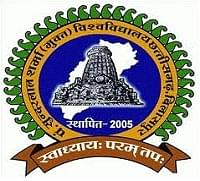A Bachelor of Business
Administration (BBA) from the top BBA college , is an undergraduate degree
program designed to provide students with a comprehensive understanding of
business principles and practices. Here business management, economics,
finance, marketing, accounting, human resources, and organizational behaviour .
Let me take you to various points to understand better :
- Core Business Subjects: BBA programs usually start with
foundational courses in business, such as principles of management,
marketing, accounting, finance, business law, economics, and
organizational behaviour. These courses lay the groundwork for more
specialized studies later in the program.
- Specializations: Many BBA programs offer staudents the
opportunity to specialize in a particular area of business according to
their interests and career goals. Common specializations include finance,
marketing, human resource management, entrepreneurship, international
business, operations management, and information technology management.
- Practical Learning: BBA programs often emphasize practical
learning experiences to help students develop real-world business skills.
This may include case studies, group projects, internships, and
opportunities for experiential learning through industry partnerships or
study abroad programs.
- Soft Skills Development: In addition to technical knowledge, BBA
programs also focus on developing soft skills such as communication,
leadership, teamwork, problem-solving, critical thinking, and
decision-making abilities. These skills are essential for success in the
business world.
- Career Opportunities: A BBA degree can open up a wide range
of career opportunities in various sectors such as banking, consulting,
retail, manufacturing, healthcare, hospitality, government, non-profit
organizations, and more. Graduates may pursue roles such as business analyst,
marketing manager, financial analyst, human resource manager, operations
manager, or entrepreneur.
- Further Education: Some students may choose to further
their education by pursuing a master's degree in business administration
(MBA) or other specialized master's programs to enhance their career
prospects and deepen their expertise in a specific area of business.
What is admission process for BBA ?
The admission process for a
Bachelor of Business Administration (BBA) program can vary depending on the
university or college offering the program and the specific admission
requirements they have in place. However, Universityfindo is India’s Top University to go for BBA with . Here are some points of admission :
- Research and Selection of
Universities/Colleges: The first step is to
research and identify the universities or colleges offering BBA programs
that align with your academic interests, career goals, location
preferences, and other criteria important to you.
- Check Admission
Requirements: Once you've
identified potential institutions, carefully review their admission
requirements, including academic qualifications, minimum GPA requirements,
standardized test scores (if applicable), language proficiency
requirements (for international students), and any additional documents or
prerequisites.
- Application Submission: Complete the application form for the
BBA program of your choice according to the instructions provided by the
university or college. This usually involves filling out an online
application form and submitting required documents, such as academic transcripts,
standardized test scores, letters of recommendation, a personal statement
or essay, and a resume.
- Standardized Tests (if
applicable): Some universities or
colleges may require applicants to submit scores from standardized tests
such as the SAT (Scholastic Assessment Test) or ACT (American College
Testing) as part of the admission process. Be sure to check the specific
requirements of each institution you're applying to and schedule the
required tests accordingly.
- Interview (if applicable): In some cases, universities or colleges
may require applicants to participate in an admissions interview as part
of the selection process. The interview may be conducted in-person, over
the phone, or via video conference and provides an opportunity for the
admissions committee to learn more about the applicant's background,
interests, and motivations.
- Application Fee: Pay the application fee as required by
the university or college. The application fee amount can vary from one
institution to another and is usually non-refundable.
- Submission Deadline: Make sure to submit your application
before the specified deadline. Missing the application deadline may result
in your application not being considered for admission.
- Notification of Admission
Decision: After reviewing all
applications, the university or college will notify applicants of their
admission decision, usually via email or through an online portal.
Admission decisions may be offered on a rolling basis or at specific
notification dates determined by the institution.
- Acceptance and Enrollment: If you receive an offer of admission,
carefully review the terms and conditions of the offer, including any
deadlines for accepting the offer and submitting enrollment deposits. Once
you've accepted the offer, follow the instructions provided by the institution
to complete the enrollment process and officially secure your spot in the
BBA program.
What is duration of BBA Course ?
The duration of a Bachelor of
Business Administration (BBA) from the top BBA college in India is as follos :
Three-Year BBA Program: Some universities or colleges offer a three-year BBA program,
especially in countries where undergraduate degrees are typically shorter in
duration. In this format, students typically complete their BBA degree
requirements within three academic years of full-time study.
- Four-Year BBA Program: Many institutions offer a four-year BBA
program, which is the standard duration for undergraduate degrees in
countries such as the United States, Canada, and others. In this format,
students complete their BBA degree requirements over four academic years
of full-time study.
- Co-op or Internship Options: Some BBA programs may include options
for co-op or internship experiences, where students alternate between
periods of academic study and work placements related to their field of
study. In such cases, the overall duration of the program may be extended
to accommodate these additional practical experiences.
- Part-Time Study: While the standard duration of a BBA
program is typically three to four years of full-time study, some students
may choose to pursue their degree on a part-time basis, which can extend
the duration of the program. Part-time BBA programs may take longer to
complete due to a reduced course load each semester.
It's essential for prospective students to check the specific
requirements and structure of the BBA program offered by Best and Affordable BBA college in India.
they are interested in attending to determine the exact duration of the
program. Additionally, factors such as academic performance, transfer credits,
and any breaks or interruptions in study can also influence the overall time it
takes to complete a BBA degree.
Syllabus of BBA
The syllabus of a Bachelor of
Business Administration (BBA) program can vary depending on the university,
college, or institution offering the program. However, I can provide you with a
general overview of the typical subjects and courses that are commonly included
in a BBA syllabus:
- Foundation Courses:
- Principles of Management
- Business Communication
- Financial Accounting
- Microeconomics
- Macroeconomics
- Business Mathematics
and Statistics
- Business Ethics
- Core Business Subjects:
- Marketing Management
- Human Resource
Management
- Financial Management
- Operations Management
- Organizational
Behavior
- Business Law
- Entrepreneurship
Development
- Strategic Management
- Specialization Courses:
- Finance
Specialization:
- Financial Markets and
Institutions
- Investment Analysis
- Corporate Finance
- Risk Management
- International Finance
- Marketing
Specialization:
- Consumer Behavior
- Advertising and Sales
Promotion
- Brand Management
- Market Research
- Digital Marketing
- Human Resource
Management Specialization:
- Training and
Development
- Compensation
Management
- Performance
Management
- Labor Laws and
Industrial Relations
- Talent Acquisition
- Operations Management
Specialization:
- Supply Chain
Management
- Quality Management
- Project Management
- Production and
Operations Management
- Logistics Management
- Elective Courses:
- Students may have the
option to choose elective courses based on their interests or career
goals. These courses can vary widely and may cover topics such as
international business, entrepreneurship, information technology
management, leadership, or industry-specific subjects.
- Internship/Practical
Training:
- Many BBA programs
include an internship or practical training component where students gain
hands-on experience by working in real business settings. This allows
students to apply theoretical knowledge in practical situations and
develop valuable skills.
- Capstone Project:
- Some BBA programs
require students to complete a capstone project in their final year,
where they work on a comprehensive research project or case study related
to their chosen specialization or a relevant business topic.
- Soft Skills Development:
- Throughout the
program, emphasis is placed on developing soft skills such as
communication, teamwork, critical thinking, problem-solving, and
leadership abilities through various activities, projects, and
assignments.
Scope of BBA
The scope of a Bachelor of
Business Administration (BBA) degree from Universityfindo is quite broad, as it
equips students with a solid foundation in various aspects of business
management and administration. Here are some key aspects of the scope of a BBA
degree:
- Diverse Career
Opportunities: Graduates with a BBA
degree have access to a wide range of career opportunities across various
industries and sectors. They can pursue roles in finance, marketing, human
resources, operations management, consulting, entrepreneurship, and more.
The versatility of the BBA degree allows graduates to explore different
career paths and industries based on their interests and skills.
- Specialization Options: BBA programs often offer students the
opportunity to specialize in a particular area of business, such as
finance, marketing, human resource management, or operations management.
Specializing in a specific field allows students to develop expertise and
enhance their career prospects in that area.
- Further Education: While a BBA degree provides a strong
foundation for entry-level positions in the business world, many students
choose to pursue further education to deepen their knowledge and skills.
Graduates may opt for a Master of Business Administration (MBA) or other
specialized master's programs to advance their careers and pursue
leadership positions.
- Entrepreneurship: The BBA curriculum often includes
courses and training in entrepreneurship, preparing students to start and
manage their own businesses. BBA graduates with an entrepreneurial mindset
can leverage their skills and knowledge to launch successful ventures and
innovate in the business world.
- Global Opportunities: With businesses becoming increasingly
interconnected in the global economy, BBA graduates have opportunities to
work in international settings and pursue careers with multinational
corporations. Many BBA programs also offer study abroad options or international
internship opportunities to expose students to global business
environments.
- Professional Development: BBA programs focus not only on academic
learning but also on developing essential soft skills such as
communication, teamwork, leadership, critical thinking, and
problem-solving. These skills are highly valued by employers and are
essential for success in the business world.
- Industry Demand: There is a consistent demand for
skilled business professionals across various industries. As businesses
continue to evolve and adapt to changing market dynamics, the need for
individuals with strong business acumen and management skills remains
high, making the BBA degree a valuable qualification in today's job
market.
Overall, the scope of a BBA degree is vast, offering graduates numerous
opportunities for career advancement, professional growth, and success in the
dynamic and competitive field of business.












